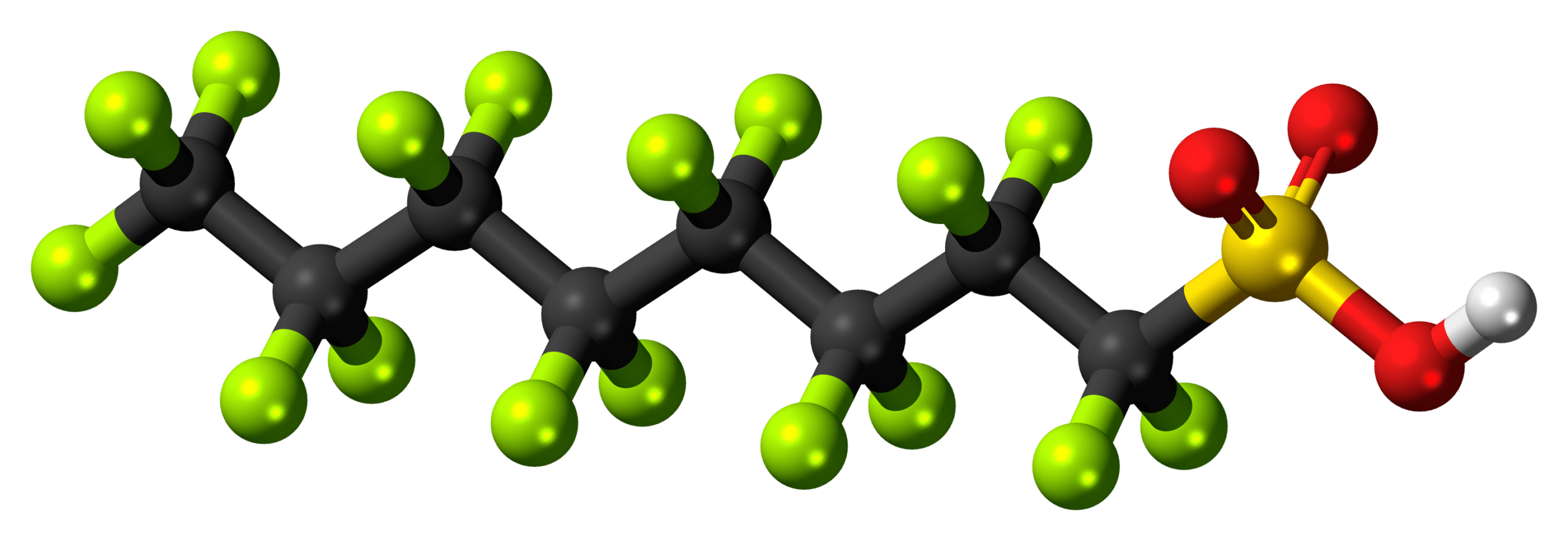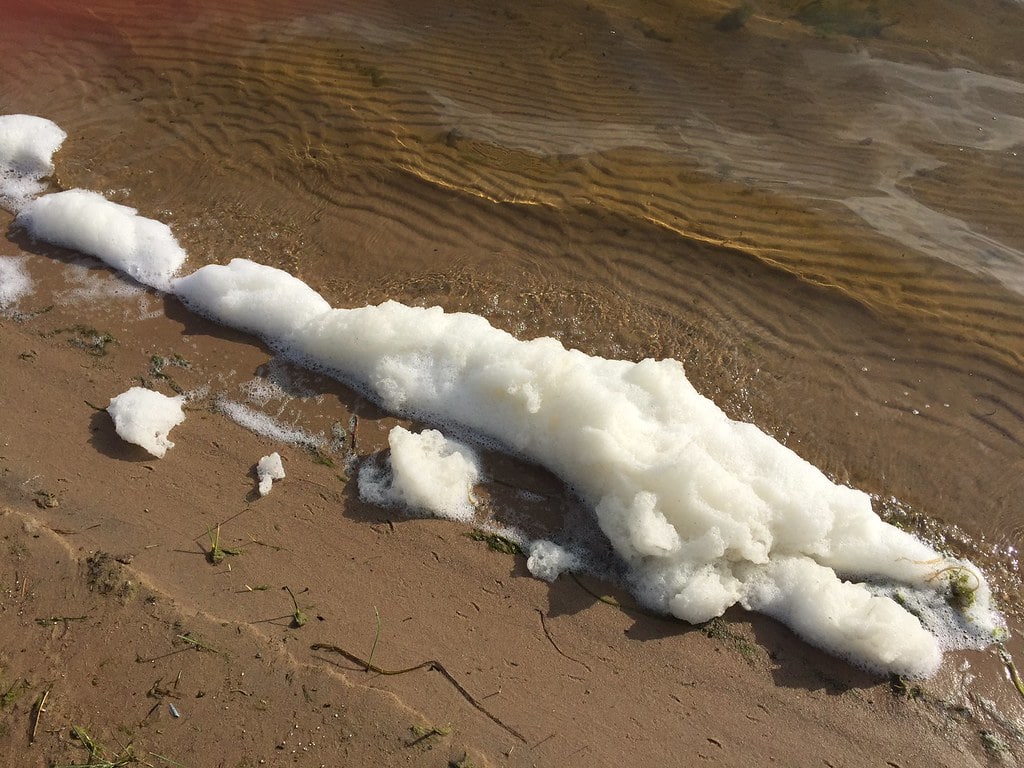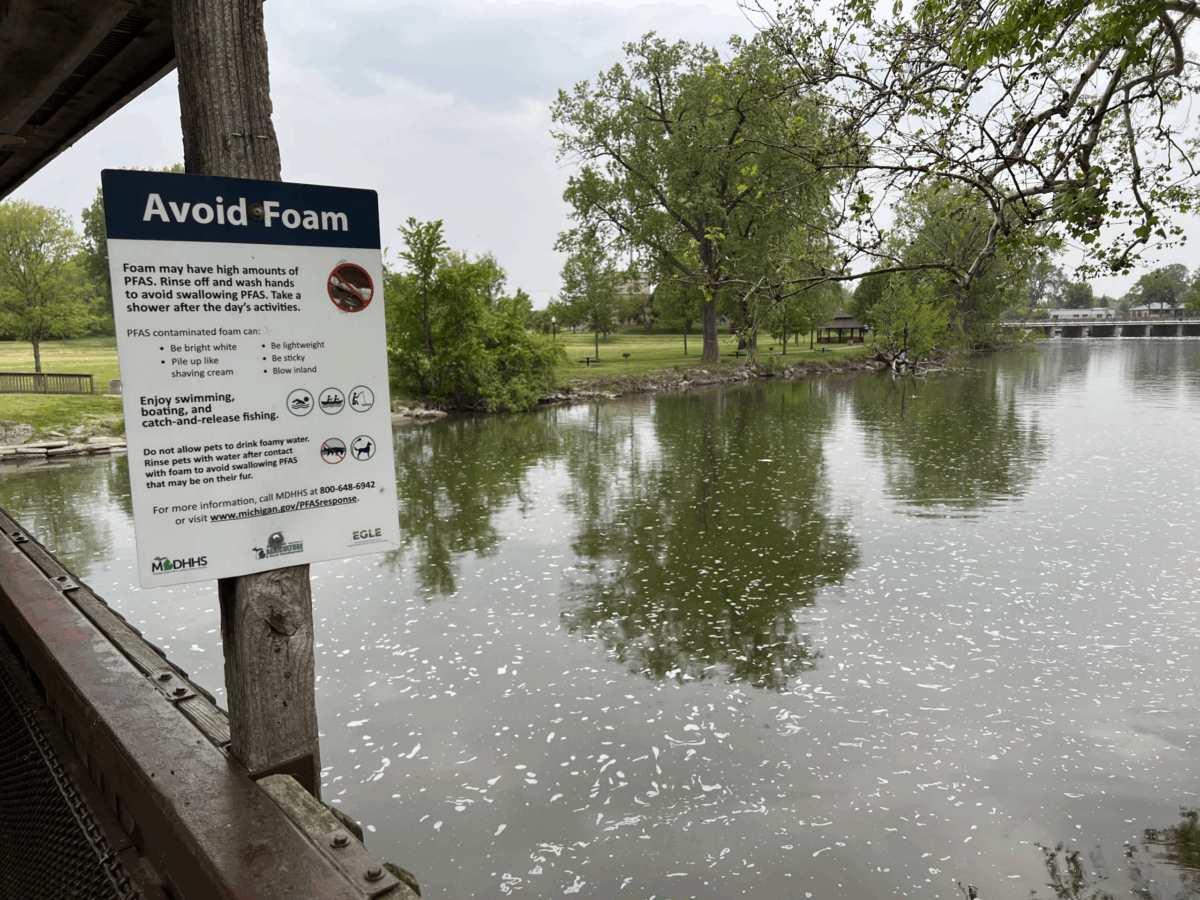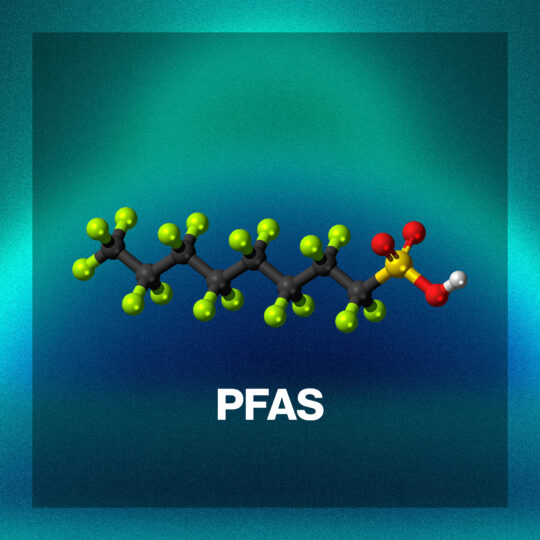What Are PFAS Chemicals?
PFAS, or Per- and Polyfluoroalkyl Substances, encompass over 4,700 man-made chemicals. Since the 1940s, they have been integral in diverse industries due to their resistance to heat, water and oil. PFAS’s presence in everyday products like non-stick cookware, water-repellent fabrics, fire-fighting foams and food packaging is notable. However, it’s their robust carbon-fluorine bonds that grant them the ‘forever chemicals’ nickname, leading to significant environmental persistence.

Common Industries and Products Containing PFAS
PFAS, due to their unique properties, are used in a wide array of industries and products. PFAS-group chemicals are typically found in the following:
- Electronics
- Automotive
- Food Packaging
- Cookware Industry
- Textile and Apparel
- Firefighting Equipment
- Construction and Building Materials
- Cosmetics and Personal Care Products
- Medical Devices and Pharmaceuticals
- Aerospace and Defence Industries

Why are PFAS Concerning for the Environment, People, and Wildlife?
Environmental Impact
PFAS compounds are found globally, from remote Arctic regions to urban ecosystems. Their environmental persistence leads to bioaccumulation, posing a threat to various ecosystems. In water systems, PFAS can be harmful even in minuscule concentrations.
Impact on Humans
PFAS exposure in humans is linked to several health issues, including cancer, immune system impacts, and thyroid hormone disruption. These concerns are underscored by studies indicating widespread PFAS presence in the population.
Impact on Wildlife
Animals, especially aquatic species and predators, are at risk from PFAS. These chemicals can cause reproductive, developmental, and systemic issues in wildlife, echoing the severity of their environmental impact.
Puragen’s Advanced Solutions for PFAS Abatement
As a leading manufacturer and supplier of activated carbons, Puragen offers innovative solutions for PFAS abatement:

Diverse Activated Carbon Range
Puragen, together with its sister company Puragen, offers a broad range of activated carbon products, including coal, coconut shell, and wood-based carbons under the FiltraPure® brand. The FiltraPure® CH range, specifically optimised for PFAS abatement, is pivotal in capturing these contaminants from water streams.
State-of-the-Art Reactivation Facilities
Our reactivation facility in the UK, spent carbons from PFAS removal applications are processed to prevent secondary contamination, showcasing our commitment to environmental safety.
Customised Solutions and Services
Puragen acknowledges the uniqueness of each PFAS contamination case, offering tailored solutions through a combination of the best activated carbon media, mobile filters, and spent media reactivation. We also provide a comprehensive range of services, including mobile carbon filter vessels, on-site carbon installation, and changeout services, backed by engineering and QC/R&D support.
Regulatory Compliance and Global Reach
Complying with the latest quality, environmental and health & safety standards, Puragen’s products meet stringent regulatory requirements. Our global sourcing capability ensures the best carbons at competitive prices, bolstered by an active R&D programme linked to our parent company, Invica Industries.
Water Treatment Applications
Puragen’s activated carbons, including powdered (PAC) and granular (GAC) forms, are vital in water purification. Their applications span municipal drinking water treatment, industrial process water, groundwater remediation, and more. These carbons are effective in removing a wide range of chemicals, including PFAS, from water streams.

Abating PFAS With Puragen
PFAS contamination is a critical environmental and health challenge. With our extensive product range, advanced reactivation facilities, and tailored solutions, we are proud to be at the forefront of addressing this issue; ensuring cleaner and safer environments for future generations.
For more information and guidance regarding PFAS and our water treatment services, please contact our team at Puragen today.

